This Baked Salmon in Foil showcases succulent salmon fillets cooked in foil packets, which not only ensures a moist and tender result but also promises easy and mess-free prep. Season the fish with a handful of spices and top it with fresh lemon if you wish.
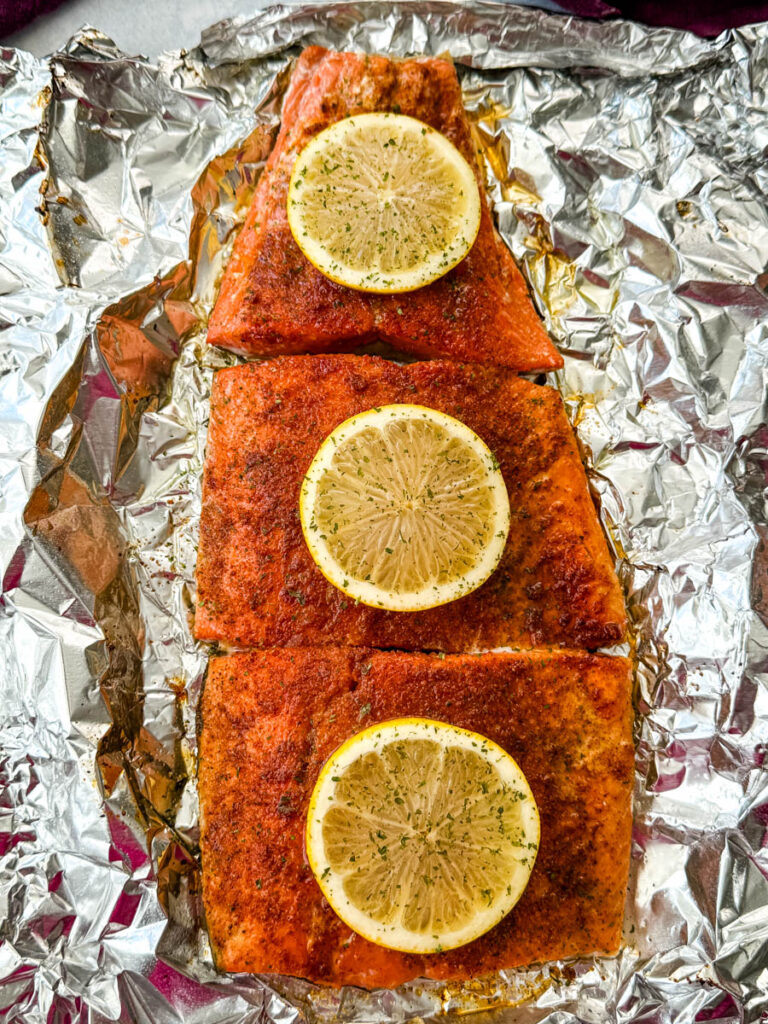
This post contains affiliate links. Please read my full disclosure here.
Why You Will Love This Recipe
- Easy Prep: Baking salmon in foil is a straightforward and hassle-free method. It requires minimal prep work, making it an excellent option for quick and convenient meals.
- Moisture Retention: This method helps trap and retain moisture, ensuring that the fish stays tender and juicy. It helps prevent the salmon from drying out during the baking process.
- Enhanced Flavor: The foil serves as a cooking vessel, allowing the salmon to cook in its own juices along with any added seasonings, herbs, or marinades. This enhances the overall flavor of the dish.
- Easy to Customize: You can add various herbs, spices, citrus fruits, and other ingredients to create different flavor profiles.
- Minimal Cleanup: Since the salmon is cooked in foil, cleanup is a breeze. There’s no need to scrub baking dishes, and the foil can be disposed of easily.
- Even Cooking: Foil helps ensure that the salmon cooks uniformly. This is particularly beneficial for thicker fillets or when cooking multiple pieces at once.
- Reduced Risk of Overcooking: The foil acts as a protective barrier, reducing the risk of overcooking the salmon.
You may also enjoy my Baked Cod in Foil recipe.
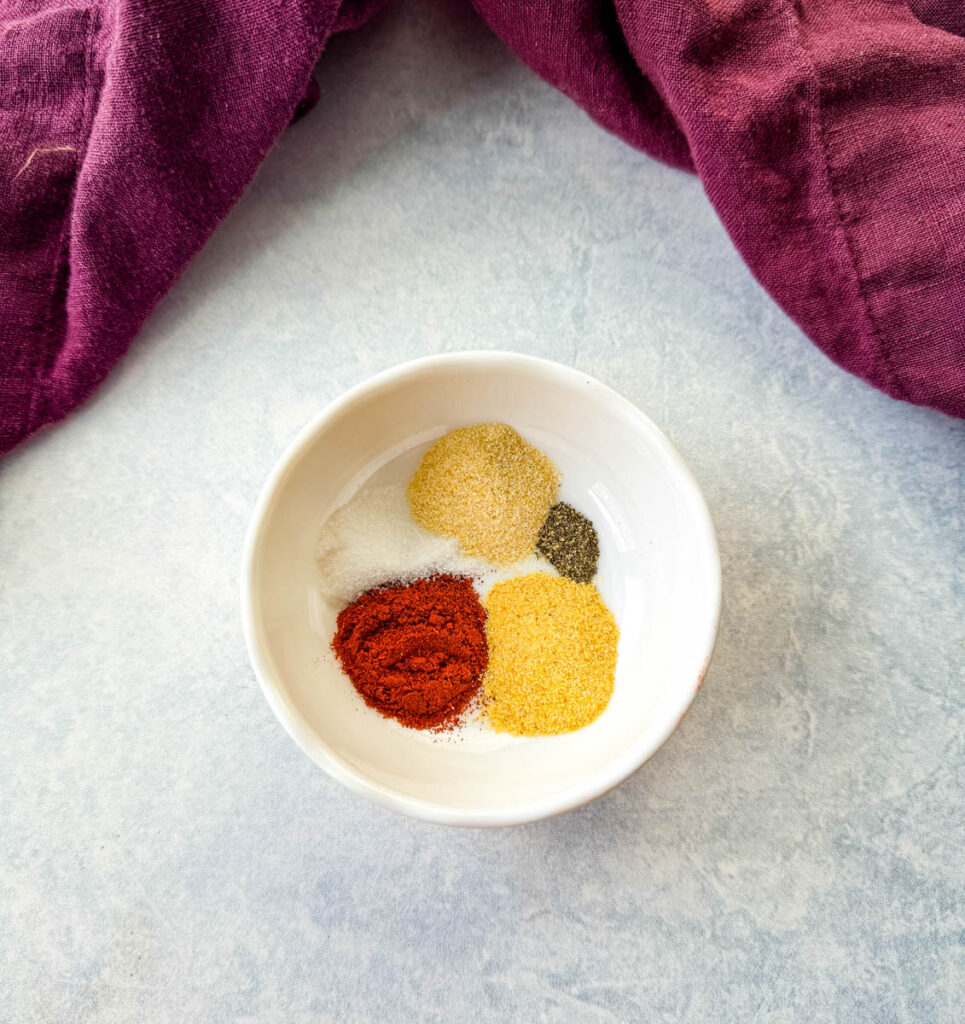
What Type of Salmon to Use
The best type to use is a matter of preference. The most common types of salmon include:
- Wild and/or Sockeye: Known for its deep red color and rich, oily flavor. It is considered one of the most flavorful types of salmon.
- Atlantic: It is farm raised and has a milder flavor than wild-caught salmon.
- Pink: It is the smallest of the Pacific salmon and has a mild, delicate flavor.
Ultimately, the best type of fresh salmon to use will depend on your personal taste preferences.
Salmon that is sourced from the Atlantic is usually farmed. Farmed means antibiotics and food coloring (to give it a pink color) are used. This adds harmful chemical additives to the fish. So I usually try to look for wild-caught salmon.
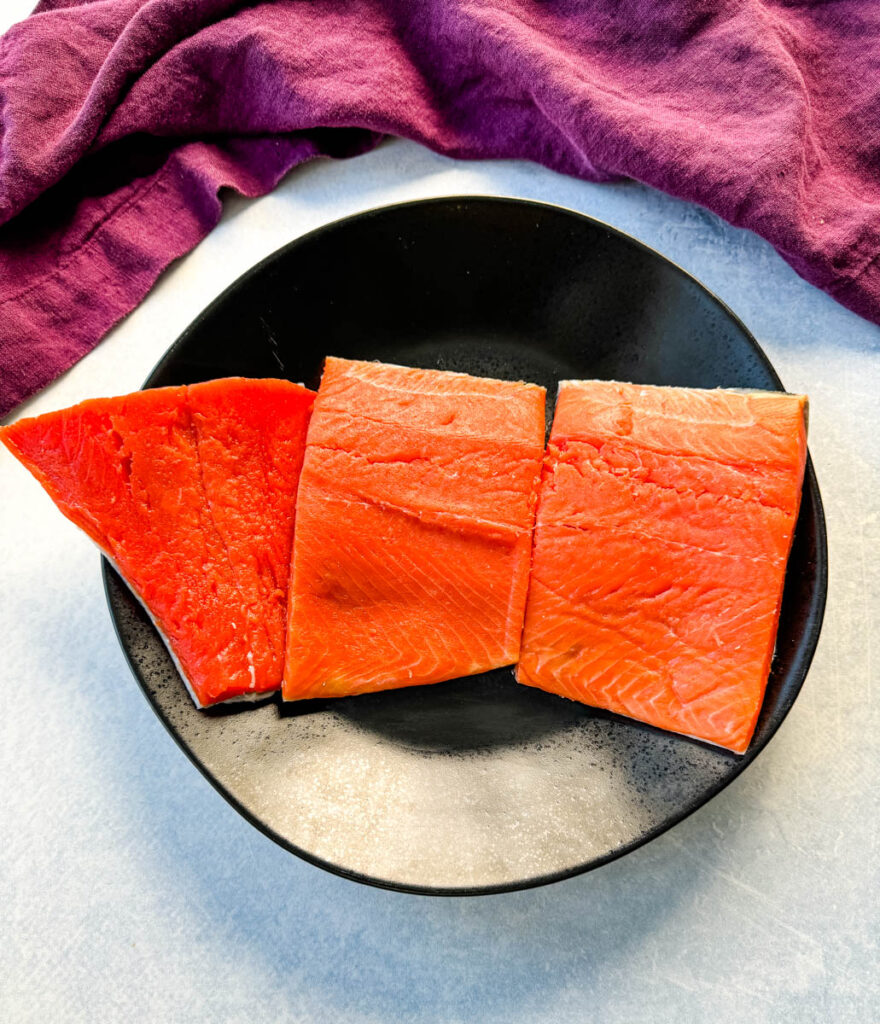
Remove the Skin? Or Leave it on?
Cooking salmon with the skin on can help to add flavor and keep the fish moist. The skin will also protect the flesh of the salmon while it cooks, this helps prevent it from over-cooking or drying out.
Cooking salmon with the skin off will allow the fish to cook more evenly, and the flesh will be exposed to more heat which can be desirable for some cooking methods. Keep in mind the flesh will be more delicate and may dry out more easily without the skin to protect it.
When cooking salmon with the skin on, it’s a good idea to remove it after cooking. It’s super simple to do so, and will usually glide right off. The skin will be crispy and delicious and the flesh will be tender and moist.
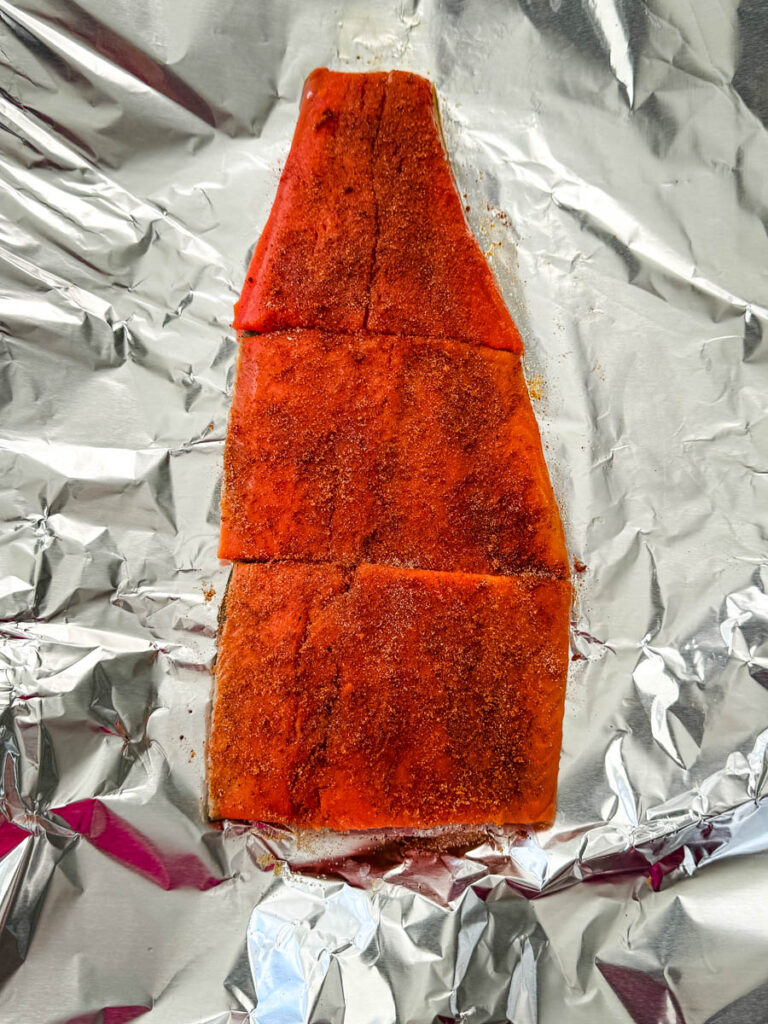
Why Use Foil
This method helps trap and retain moisture, ensuring that the fish stays tender and juicy. It helps prevent the salmon from drying out during the baking process.
How to Make Baked Salmon in Foil
Full detailed instructions are below in the recipe card.
- Drizzle the olive oil over the salmon and then sprinkle spices throughout.
- Add the salmon to a piece of foil large enough to hold the salmon and to wrap and cover it.
- Bake.
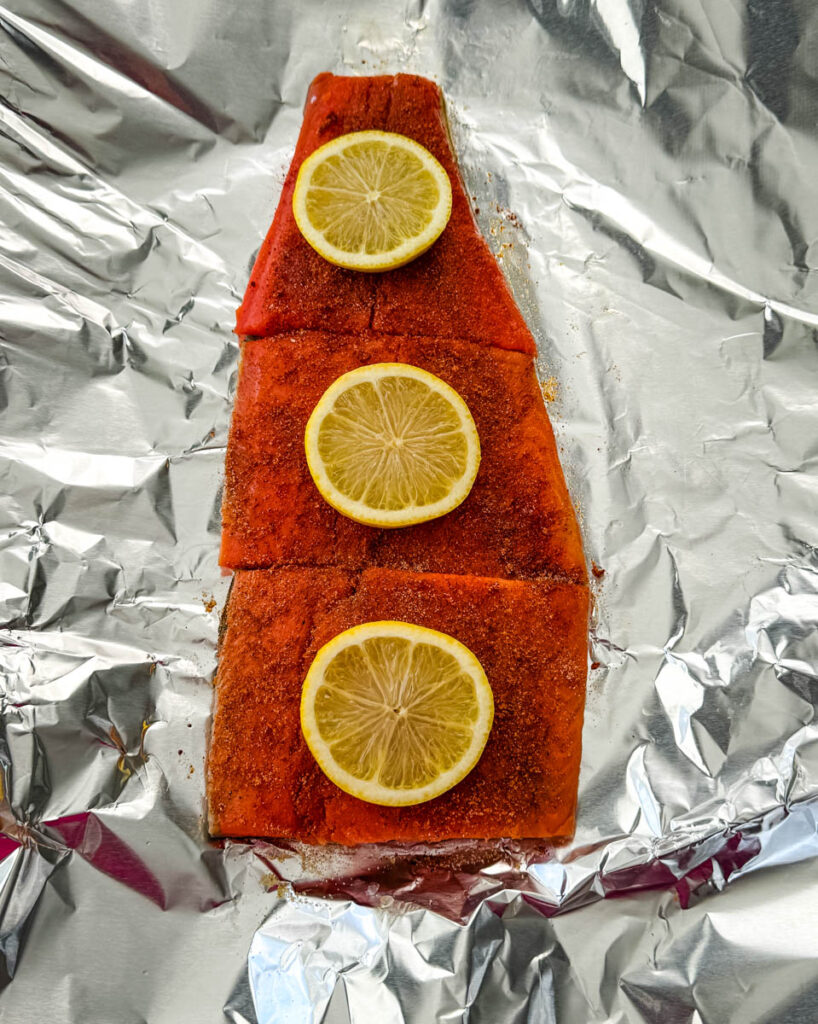
Temperature
I recommend 400 degrees.
Can You Use Parchment Paper
Check out my Baked Salmon in Parchment Paper recipe.
How to Tell When Salmon Has Finished Cooking
- Temperature: Use a meat thermometer and ensure the fish has reached an internal temperature of 145 degrees. Check the temperature in the thickest part of the fish.
- Appearance and Touch: Perfectly cooked salmon will have a light pink color and will be opaque throughout. The flesh will also start to flake when pressed with a fork.
- It’s important to note that salmon can be cooked to varying degrees of doneness, some people prefer it cooked through while others prefer it medium-rare at 135 degrees. Decide what works for you.
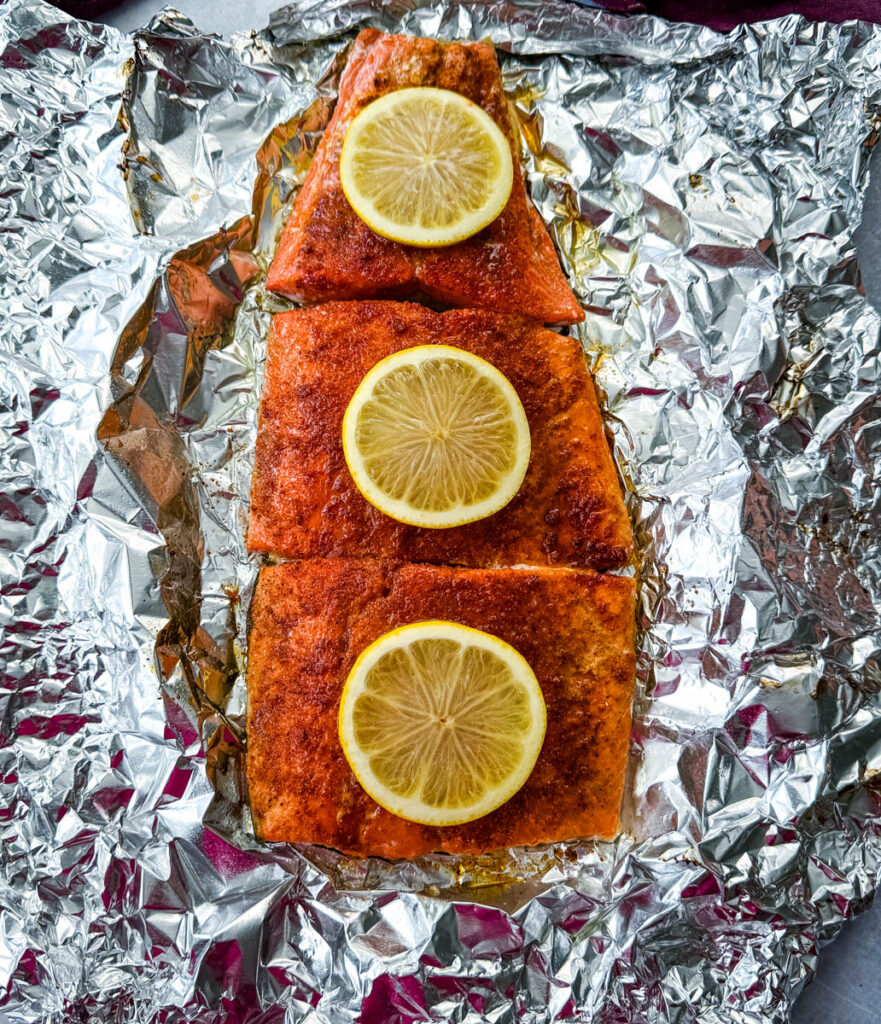
Dry and Overcooked Salmon
Overcooked salmon is dry and has little flavor. Fish (along with meat) will continue to cook when you remove it from heat. This is why it’s important to pay attention to how long the fish cooks.
When the fish is done, it will be a translucent pink in the middle. It should also look flaky. You can check out more tips on How to Tell if Salmon is Overcooked here.
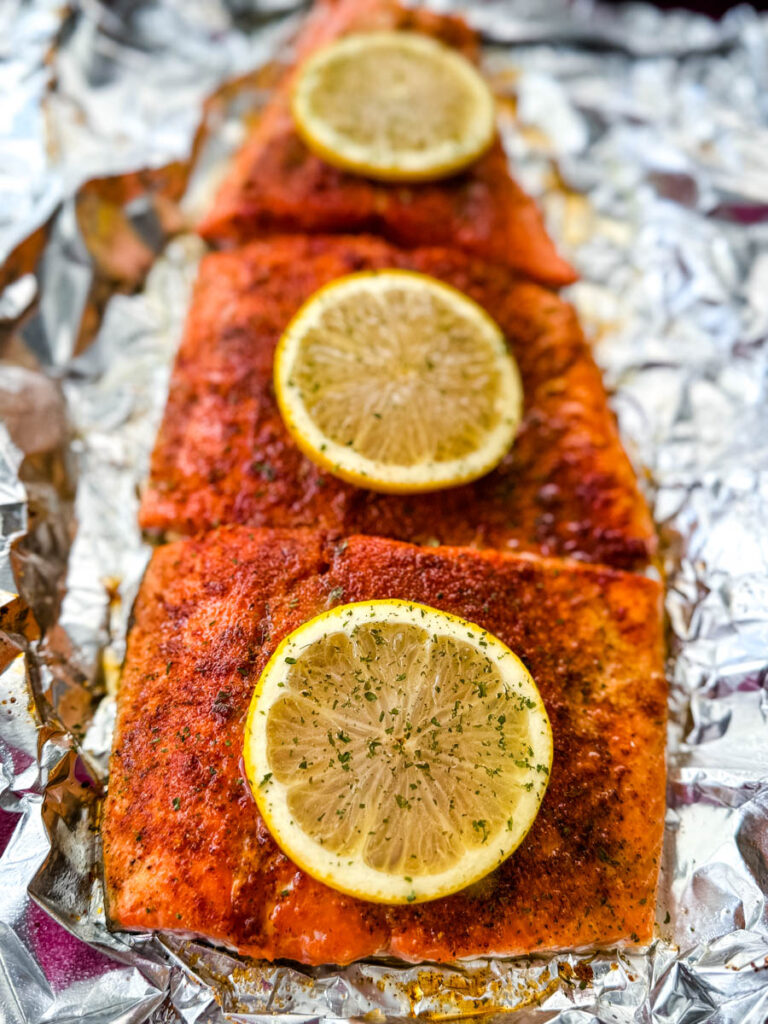
More Ways to Season It
- Cajun Seasoning
- Lemon Pepper
- Cayenne
- Dill
- Oregano
- Rosemary
- Cumin
- Chili Powder
- Honey
- Balsamic Vinegar
How to Store Leftovers
Store the salmon tightly covered in the fridge for 3-4 days.
Freezer Tips
Leftovers can be frozen tightly sealed for up to 2 months. Defrost overnight in the fridge.
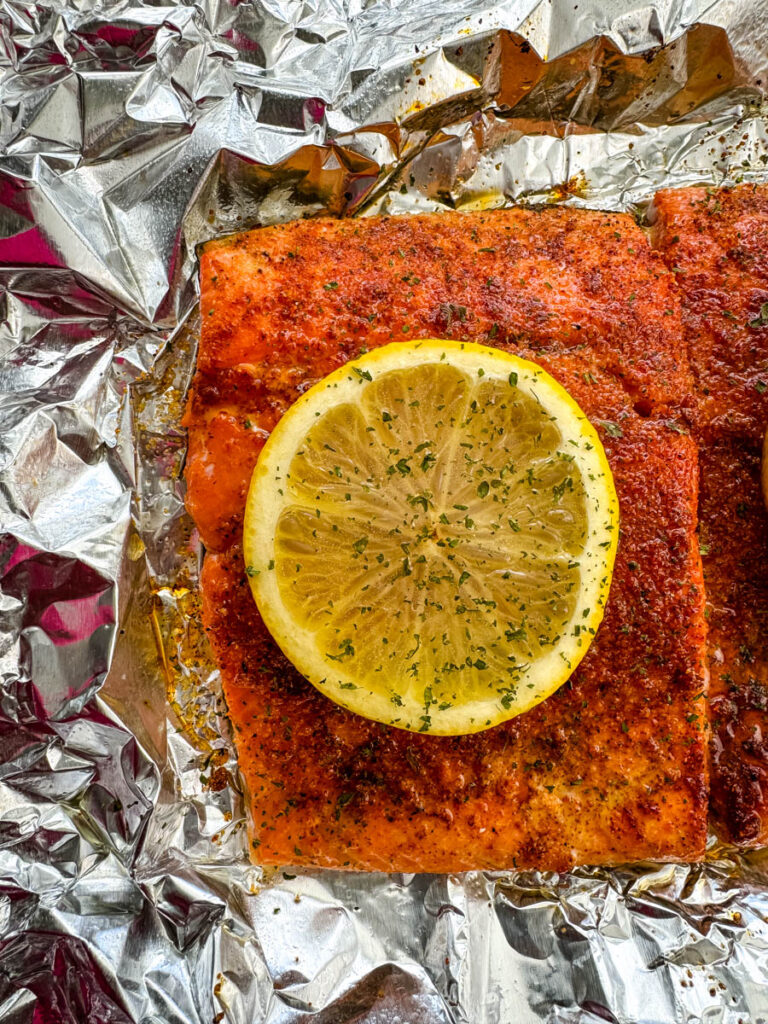
How to Reheat
I recommend you use the air fryer or oven. If using the oven, place the salmon on a baking sheet lined with parchment paper. Cover the salmon with foil and place it in the oven at 275 degrees until warm.
If using the air fryer, reheat it at 200 degrees for 5-7 minutes or until warm.
If you use the microwave, be swift! Don’t leave it in too long. It will dry out the fish.
Pair With These Recipes
Fried Potatoes and Onions
Chipotle Rice Recipe
Roasted Okra
Au Gratin Potatoes with Bacon and Cheese
Ranch Potatoes with Seasoning
More Salmon Recipes
Salmon Rice Bowl
Easy Salmon Bites
Cajun Salmon
Air Fryer Salmon (15 Minute Recipe)
Maple Glazed Salmon
Cedar Plank Grilled Salmon
Smoked Salmon Eggs Benedict
Salmon Fried Rice with Vegetables
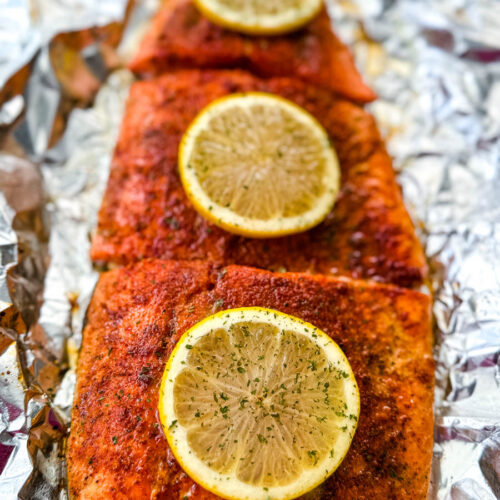
Baked Salmon in Foil
Ingredients
- 1-1 1/2 pounds raw salmon Mine were sliced into fillets 4-6oz each.
- 1/2 tablespoon olive oil
- 1/2 teaspoon smoked paprika Regular paprika is fine.
- 1/2 teaspoon garlic powder
- 1/2 teaspoon onion powder
- Salt and pepper to taste
- foil
Instructions
- Preheat oven to 400 degrees.
- Add the salmon to a piece of foil large enough to hold the salmon and to wrap and cover it.
- Drizzle the olive oil over the salmon and then sprinkle the spices throughout. Rub the spices into the salmon and along the edges of the salmon.
- Bake for 10 minutes.
- Unwrap the salmon so it is no longer fully covered. Bake for for another 2-5 minutes. Use a meat thermometer and ensure the fish has reached an internal temperature of 145 degrees. Check the temperature in the thickest part of the fish.
- Allow the salmon to cool before serving.
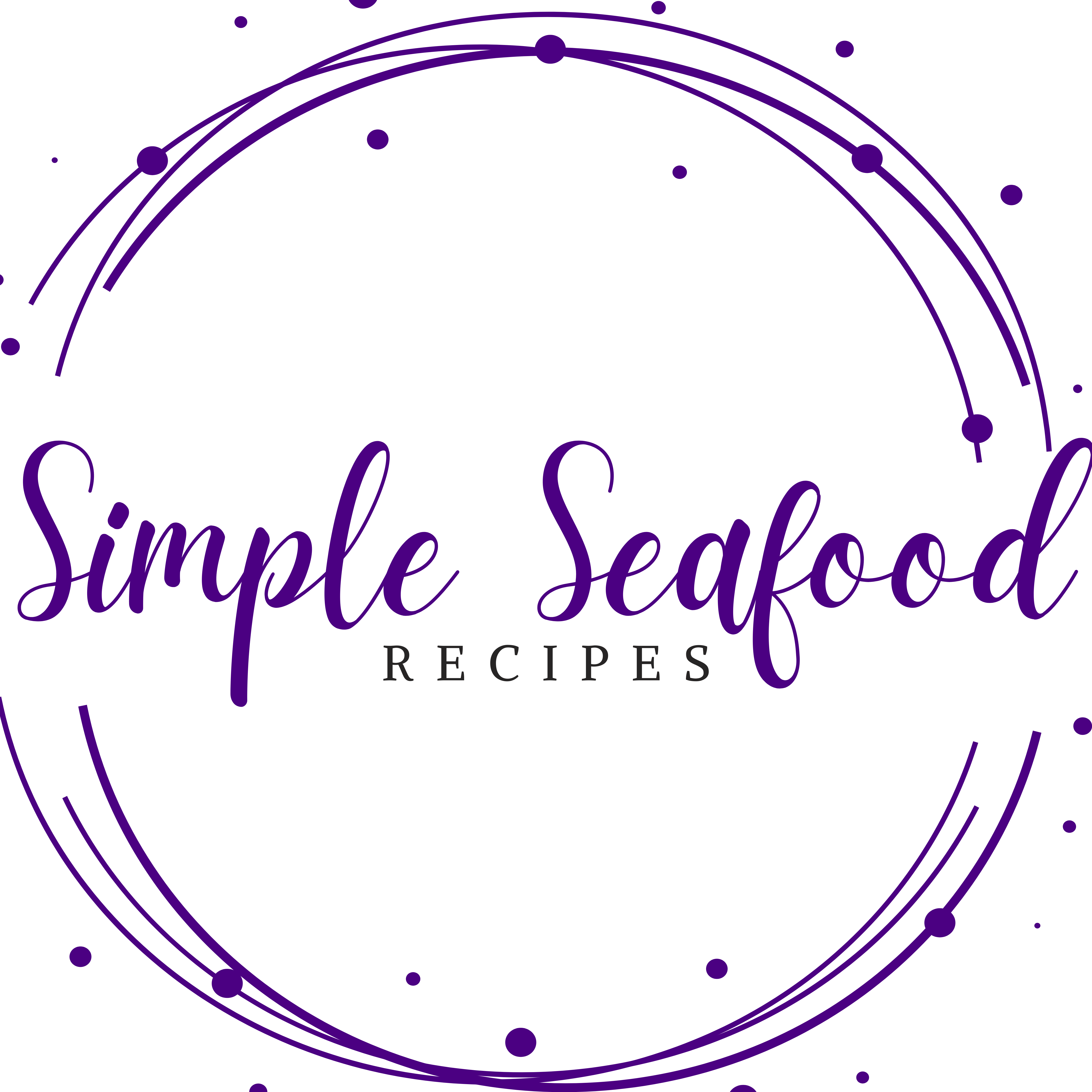
Lima Ekram
Saturday 27th of January 2024
This was an amazingly easy recipe. The whole family loved it!
Brandi Crawford
Sunday 28th of January 2024
So simple!
Tara
Saturday 27th of January 2024
Oooh, the salmon sounds so good with the paprika. I love the minimal prep too.
Tayler
Saturday 27th of January 2024
I'll never make salmon another way! I made this for dinner last night and it turned out perfectly!
Brandi Crawford
Sunday 28th of January 2024
One of the best ways to make it!
Andrea
Saturday 27th of January 2024
Will be adding this flavorful, easy to make, delicious salmon to my meal rotation right now. It's fabulous!
Brandi Crawford
Saturday 27th of January 2024
Perfect to add to the rotation.
Stephanie
Saturday 27th of January 2024
I was excited to try this recipe as I've always just pan seared my salmon dishes. Baking in foil was so much easier and tastier - the salmon turned out great! The added bonus is cleanup was a snap!
Brandi Crawford
Saturday 27th of January 2024
Perfect for easy clean up!